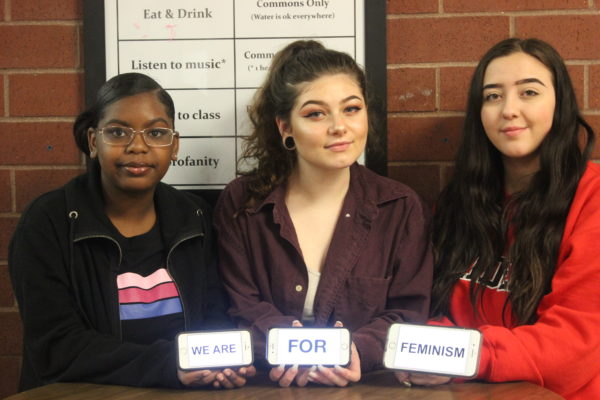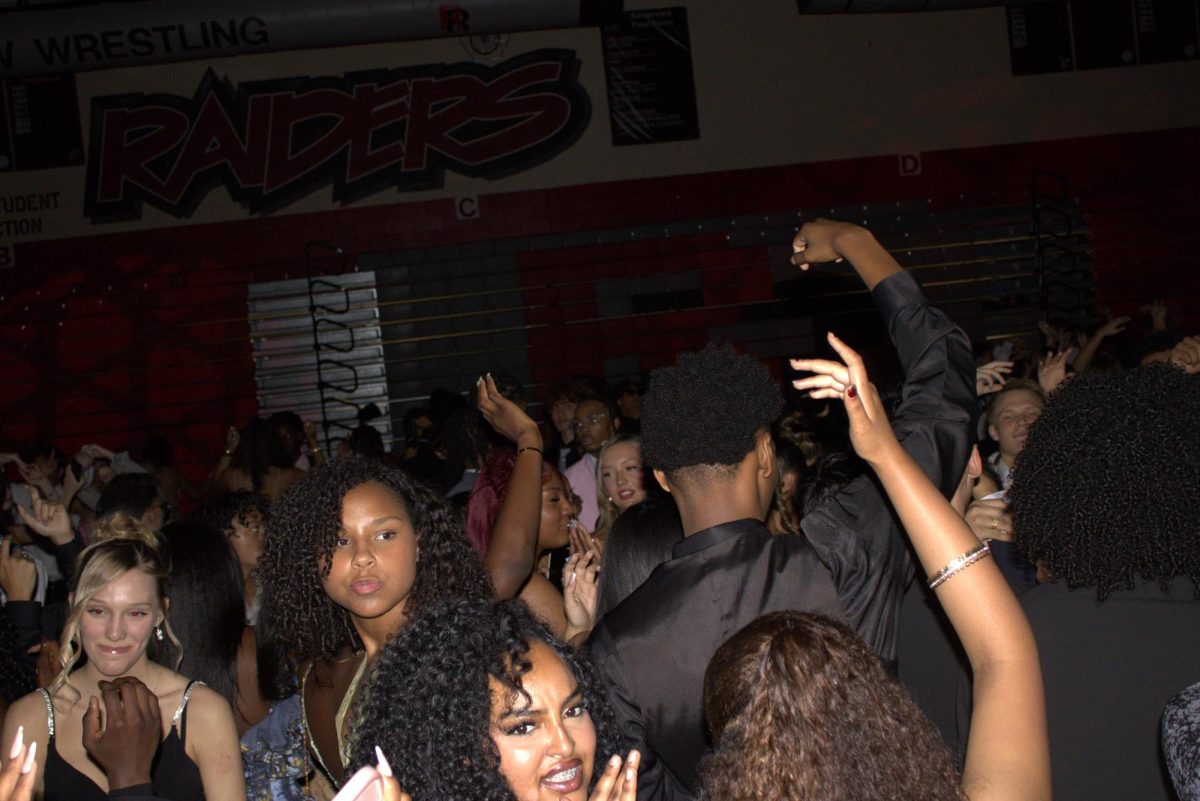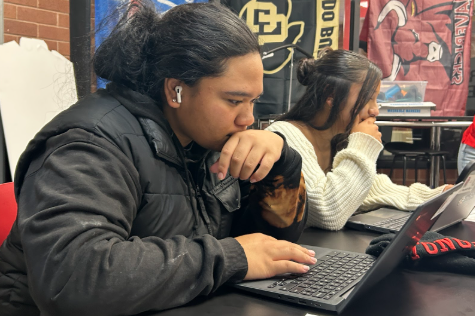Feature Photo By: Kenya Lee – Juniors (from left to right) Jordan Higgs, Khloie Westback, and Riley Ortiz pose with the words “We are for feminism” to show their support for the movement. They also consider themselves feminists.
Feminism, according to Merriam-Webster, is defined as “the theory of the political, economic, and social equality of the sexes.”
Feminism, according to feminists, is equality for men and women.
Many say that 2017 was quite the year for feminism and that 2018 proves to be keeping up; the second annual Women’s March occurred on January 20th across the country including in Denver at Civic Center Park. Thousands of people gathered to protest for gender equality but also for race, religion, class, sexual orientation and ethnicity equality within the feminism community.
“Feminism definitely supports women but we always see the focus on white women first then the minorities,” said sophomore Liseth Vars.
This year feminist movements are incorporating intersectionality more into their movements to be sure they stand up for the rights of every women not just white women.
Activism that began in 2017 and continues on into 2018 range from the #MeToo movement, which created an outlet for women to come out with stories of being sexually harassed and assaulted in the workplace to a movement that promotes male vulnerability. By the end of 2017, feminism was the number one most-searched word on Merriam-Webster’s online dictionary.
When asked, the majority of students say that they are for feminism, while the rest say that, “It depends. If it’s the extremists who belittle men, then no, but if it’s for equality of the sexes then of course,” said junior Indi Sandika.
The crackdown on feminism is clearly a decades-long war. To understand feminism, one must understand each stage or “wave” of feminism.
- The first wave of feminism focused on women’s rights to vote back in the 1800s.
- The second wave, from the 1960s-80s, focused on women’s rights to work, and have choices about their reproduction.
- The third wave concentrated on gender equality involving the LGBTQ+ community.
- Many say the fourth wave is just like the third but its catalyst is online.
The question that stands: What does feminism mean for students? The general answers given by students were: more rights for women, equality of the sexes, and many believed it’s an unnecessary movement that has lost its cause. Multiple students also had not known what feminism was in the first place.

“I think people have a bad connotation, people think females want more, I don’t agree they just want to make equal to the man’s dollar because they make less. It’s not just about the dollar though it’s more, there’s also a lot about statutory rape, there’s this unequal balance,” said junior Roman Edwards.
Although there is a lot more to feminism than equal pay and sexual misconduct, it seems that’s what the main focus is. When the word ‘feminist’ is said many attribute those specific things with the entire movement.
What should be understood is that equality does not mean more rights for a certain group over the other(s), therefore wanting equal rights for men and women does not make women superior. Extreme feminists, though, make an effort to tear away men’s rights and look down on them in order to feel equal.
“I don’t like when women accuse a lot of men of being a certain way, they generalize men, and you can’t generalize anything because you’re saying that everyone is like that and that’s false, not everyone’s the same, not everyone has the same ideas,” said junior Fernando Perez.
The generalization of both men and women is what perpetuates controversy around feminism.
Overall, it’s clear that not everyone is on the same page. There are a lot of misunderstandings around the subject. To many, feminism is still an important topic of discussion that has not been resolved, while many other students think that feminism itself is extreme. But is it extreme to make sure that all genders have the same opportunities to life, liberty and the pursuit of happiness?






